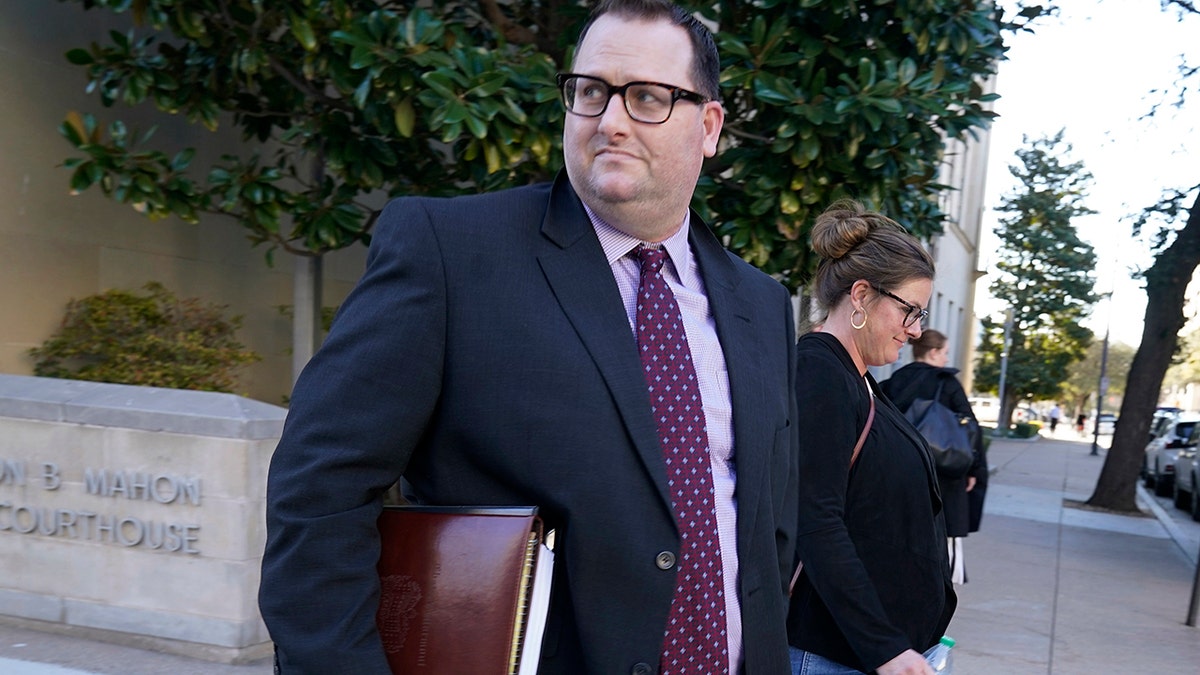Fox News Flash top headlines for February 16
Fox News Flash top headlines are here. Check out what's clicking on Foxnews.com.
Defense attorneys rested their case Wednesday without the testimony of a former Los Angeles Angels employee accused of providing the drugs that led to the overdose death of pitcher Tyler Skaggs.
A brief and uneventful presentation from the defense came a day after federal prosecutors concluded their case with the gripping testimony of four major league players acknowledging past drug use while saying they received oxycodone pills from defendant Eric Kay.
Kay, who faces drug distribution and conspiracy charges, obtained oxycodone pills for players and was a user, according to testimony. Pitcher Blake Parker, the last of six witnesses called by the defense, testified that he received opioids from Kay in 2018, the last year Parker played for the Angels.
CLICK HERE FOR MORE SPORTS COVERAGE ON FOXNEWS.COM
Closing arguments are scheduled for Thursday, the eighth day of Kay's trial in downtown Fort Worth. The federal court is about 15 miles from where the Angels were supposed to play the Texas Rangers when Skaggs was found dead in his suburban Dallas hotel room on July 1, 2019. He was 27.
A coroner’s report said Skaggs had choked to death on his vomit, and a toxic mix of alcohol, fentanyl and oxycodone was in his system.
Prosecutors contended Kay was the only one who could have provided the drugs that led to Skaggs’ death, and that the drugs were delivered after the team arrived in Texas. An expert testified for the government that Skaggs died because of the fentanyl, which is significantly more potent than oxycodone.

Former Los Angeles Angels employee Eric Kay walks out of federal court where he is on trial for federal drug distribution and conspiracy charges, in Fort Worth, Texas, Tuesday, Feb. 15, 2022. Kay is accused of providing Tyler Skaggs the drugs that led to the pitcher's overdose death. The 27-year-old Skaggs was found dead in July 2019 in a suburban Dallas hotel room. He had choked to death on his vomit, and a toxic mix of alcohol, fentanyl and oxycodone was in his system. (AP Photo/LM Otero)
The defense countered that Skaggs had multiple suppliers, that Kay didn't give him drugs after the team arrived in Texas and that there's no way to prove fentanyl caused the death.
Kay faces a minimum sentence of 20 years in prison and maximum of life on the distribution charge resulting in death. The conspiracy count carries a maximum of 20 years.
Parker was emotional when he first took the stand, saying he considered Skaggs a friend and said, "I thought so," when asked if Kay was a good guy. Parker said he quit asking Kay for pills when Kay said he was trying to quit using oxycodone.
Kay served as the team’s public relations contact on many road trips, and the trip to Texas was his first since returning from rehab. Kay was placed on leave shortly after Skaggs’ death and never returned to the team.
Two more former Angels players, infielder Andrelton Simmons and pitcher Trevor Cahill, testified that they saw Skaggs at the hotel the night before he was found dead. Both said Skaggs had mentioned the possibility of going out but they didn't think he left the hotel.
Garet Ramos, Skaggs' stepbrother, was asked by the defense if he deleted any texts from Skaggs' phone when it was given to him by police in the suburb of Southlake, where Skaggs died. Ramos said he didn't.
The defense has said Ramos deleted a text at the request of Chris Leanos, a friend of Skaggs who acknowledged in testimony that he was a drug dealer. Leanos said he received a text from Skaggs a week or two before the pitcher died asking for oxycodone and Leanos refused, saying he warned Skaggs of the danger of those pills.
Ramos said he couldn't remember specifics of how he might have helped wean Skaggs off Percocet, a combination of oxycodone and acetaminophen, in 2013. Skaggs' mother, Debbie Hetman, testified early in the trial that her son had an issue with Percocet in 2013 and that he quit "cold turkey" at the time.









































